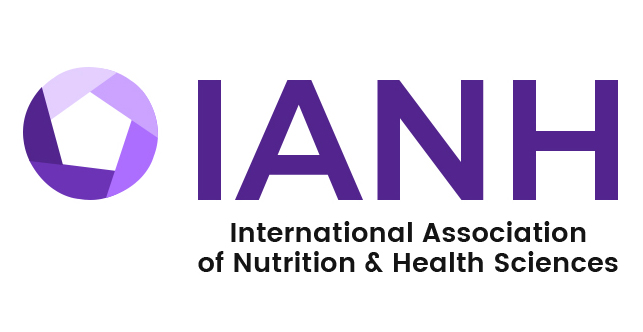Sugar Substitutes: Natural vs Artificial Sweeteners
Sugar substitutes allow individuals to enjoy sweetness without compromising health or feeling guilty about their choices. Natural Sweeteners are also known as non-nutritive sweeteners, are a type of sweetener used for individuals who want a sweet taste in food and beverages without added calories derived from plants, such as stevia, and monk fruit, whereas maple syrup, and honey have some added calories. Moreover, individuals acquiring natural sweeteners can benefit from the fact that they are organic, and contain a limited quantity of antioxidants, vitamins, and minerals.
Natural Sweeteners examples:
Stevia sweeteners are calorie-free sweeteners manufactured by Stevia Rebaudiona. It may be used to reduce added sugar consumption without sacrificing the flavor, and an approximate range of 200-350 times sweeter than sugar, and a teaspoon of stevia is as sweet as a cup of sugar. Moreover, stevia sweeteners can be utilized in canned fruits, sauces, dairy products, baked goods, cereals, chocolates, confections, syrups, and beverages like diet sodas, low-sugar juices, and flavored waters. Some individuals find the aftertaste of stevia unpleasant due to its bitterness and would want an alternative sweetener.
Monk fruit sweeteners are likewise made from a tiny, Asian native melon and as well have no calories. There are several varieties of monk fruits, including baked, powdered, brown, and golden. It’s typically between 100 and 250 times sweeter than table sugar. It has an advantage over stevia sweeteners due to its stability when exposed to heat, with an aftertaste of monk fruit that is pleasant compared to stevia. Monk fruit sweeteners are another option that some people use to cut calories in baked products. Substituting monk fruit sweeteners for sugar in recipes may lead to slightly different results in texture and volume due to sugar’s role beyond sweetness. Additionally, the monk fruit extract is a concentrated sweetener made from the mogrosides in the monk fruit, which is highly processed and sweeter than sugar.
Artificial Sweeteners are a type of sweetener, that is also calorie-free yet has a powerful flavor and has no calories and is either broken down into many components or not broken down at all and is derived from plant extracts that are used in chemical synthesis. They can be 200- 700 times sweeter than table sugar, and are typically found in dairy products, sugar-free candies, and soft drinks.
Exposure to artificial sweeteners can permanently modify a person’s taste for sweetness, increasing their lifetime sugar intake. Moreover, it may also prevent a person from understanding the fundamental relationships between sweet flavors and calorie delivery, which could have a negative impact on metabolic process regulation. There are several examples of artificial sweeteners such as Advantame, Aspartame, Neotame, Saccharine (Sweet n Low), Acesulfame potassium (Ace-K), and Sucralose. Artificial sweeteners may change the gut microbiota’s makeup, which leads to metabolic dysregulation, and might attach the individual’s nervous system to the dopamine-releasing sweetness. Some studies have shown that artificial sweeteners are addictive, and when people consume a lot of these sweeteners, there might be a chance to have some serious health conditions like metabolic syndrome, hypertension, and obesity.
In summary, both sweeteners share similarities in reducing calorie intake and substituting sugar with a healthier option. However, they differ in sweetness levels and other factors. For instance, various research suggested that natural sweeteners are a safer option than artificial sweeteners since they are often less processed and have stronger nutritional benefits, and antioxidants that contribute to overall health and well-being, so customers distinguish them positively. To illustrate, for individuals with diabetes, sweeteners are a safer choice as they do not raise blood sugar levels as regular sugar does.
References:
Artificial sweeteners (no date) Artificial Sweeteners – an overview | ScienceDirect Topics. Available at: https://www.sciencedirect.com/topics/agricultural-and-biological-sciences/artificial-sweeteners (Accessed: 01 July 2024).
Artificial vs. natural sweeteners: The inside scoop on Sugar Substitutes (2024) Gundersen Health System. Available at: https://www.gundersenhealth.org/health-wellness/eat-move/artificial-vs-natural-sweeteners-the-inside-scoop-on-sugar-substitutes (Accessed: 01 July 2024).
Author links open overlay panelRoberto Castro-Muñoz a b et al. (2021) Natural sweeteners: Sources, extraction and current uses in foods and Food Industries, Food Chemistry. Available at: https://www.sciencedirect.com/science/article/abs/pii/S030881462101997X (Accessed: 29 June 2024).
Bramlet, K. (no date) Artificial sweeteners and natural sweeteners: What to know, MD Anderson Cancer Center. Available at: https://www.mdanderson.org/publications/focused-on-health/artificial-sweeteners-natural-sweeteners.h23-1591413.html (Accessed: 29 June 2024).
Cleveland Clinic (2024) This is what makes artificial sweeteners so bad for you, Cleveland Clinic. Available at: https://health.clevelandclinic.org/whats-worse-sugar-or-artificial-sweetener (Accessed: 01 July 2024).
Facts about sugar and sugar substitutes (2024) Johns Hopkins Medicine. Available at: https://www.hopkinsmedicine.org/health/wellness-and-prevention/facts-about-sugar-and-sugar-substitutes (Accessed: 01 July 2024).
Food Insight (2023) Everything you need to know about monk fruit sweeteners, Food Insight. Available at: https://foodinsight.org/everything-you-need-to-know-about-monk-fruit-sweeteners/ (Accessed: 29 June 2024).
Food Insight (2024) Everything you need to know about stevia sweeteners, Food Insight. Available at: https://foodinsight.org/everything-you-need-to-know-about-stevia-sweeteners/ (Accessed: 29 June 2024).




